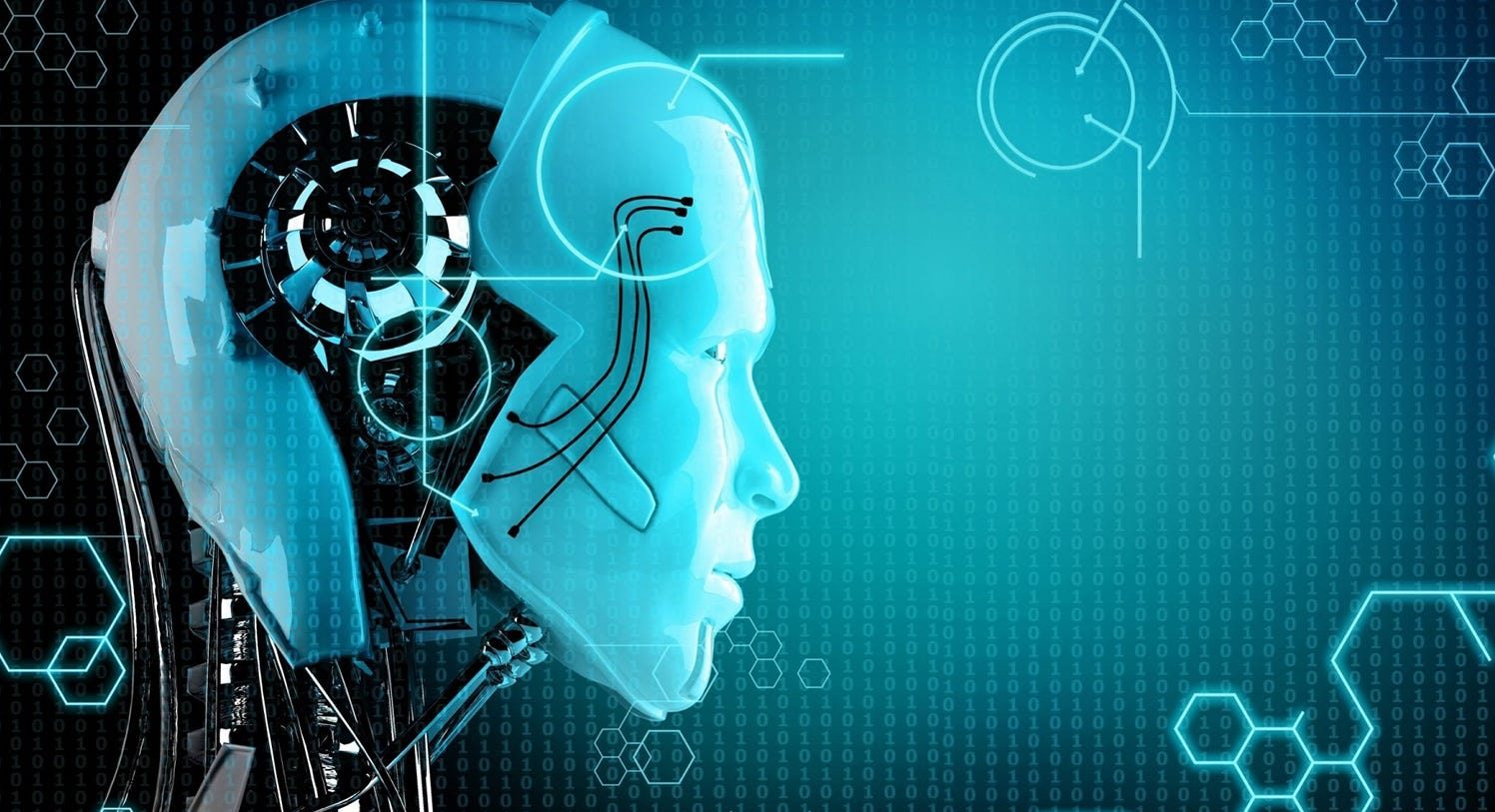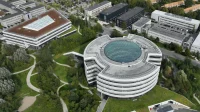Imagine a world where software practically writes itself, where complex applications materialize from mere whispers of intent, and lines of code dance across the screen like digital butterflies. This, my friends, is a glimpse into the potential future of software development – a future brimming with innovation, automation, and groundbreaking possibilities. But before we blast off on this technological odyssey, let’s take a pit stop to understand the current landscape.
The Evolving Landscape: Trends Shaping the Software Development Frontier
The software development landscape is a constantly shifting terrain, sculpted by emerging trends and technological advancements. Here are some key players currently shaping the scene:
The Rise of the Machines: Artificial Intelligence (AI) and Machine Learning (ML)
Get ready, because AI and ML are poised to become your new coding comrades. These technologies are rapidly evolving, automating repetitive tasks, and even generating basic lines of code. Imagine AI assistants that suggest code snippets, identify potential bugs, or streamline testing procedures. The future of software development might involve less line-by-line coding and more focus on high-level design and strategic problem-solving.
The Democratization of Development: Low-Code/No-Code Platforms
Remember that feeling of accomplishment when you finally built that perfect bookshelf with IKEA instructions? Low-code/no-code platforms are like the IKEA of software development. They empower individuals with limited coding experience to create basic applications using drag-and-drop interfaces and pre-built modules. This democratization of development opens doors for citizen developers and allows businesses to prototype ideas faster.
The Edge of Innovation: Edge Computing
As the Internet of Things (IoT) expands, with billions of interconnected devices spewing forth data, traditional cloud computing can face latency issues. Enter edge computing – a paradigm where processing power is distributed to the network’s fringes, closer to the devices themselves. This allows for faster data processing and real-time decision making, critical for applications like autonomous vehicles or industrial automation.
Security: The Ever-Present Challenge
With innovation comes the inevitable dance with cyber threats. As software becomes more complex and interconnected, the need for robust security measures becomes paramount. The future of software development will likely see a focus on building security by design, integrating security measures throughout the development lifecycle, not as an afterthought.
Beyond the Horizon: Unveiling Potential Game Changers**
The software development frontier is vast and uncharted, with possibilities that might seem like science fiction today. Let’s delve into some potential game changers on the horizon:
Quantum Supremacy: A Mind-Bending Leap
Quantum computing promises to revolutionize various fields, and software development is no exception. Imagine tackling problems that are currently computationally impossible, like designing unbreakable encryption algorithms or simulating complex molecular interactions for drug discovery. Quantum computing, with its ability to harness the power of superposition and entanglement, could unlock a whole new era of software possibilities.
The Rise of the Biohackers: Brain-Computer Interfaces (BCIs)
The thought of directly controlling software with your mind might sound like something out of a cyberpunk movie, but BCIs are making significant strides. Imagine applications designed to decode your brainwaves, allowing you to interact with software through pure thought. The ethical implications are vast, but the potential for revolutionizing human-computer interaction is undeniable.
The Evolving Developer: Adapting to a Changing Landscape
The future of software development will demand a new breed of developers – individuals skilled in AI, cloud computing, and security best practices. But beyond technical skills, the ability to adapt, collaborate, and think creatively will be paramount. The future software developer will be a problem-solver, a strategist, and a lifelong learner, navigating a landscape in constant flux.
The Human Touch: Why Developers Will Still Be Relevant
While AI and automation are on the rise, fears of robots replacing human developers are likely unfounded. Software development is, at its core, a creative endeavor. It’s about understanding problems, designing innovative solutions, and crafting elegant code. These are all skills that require human ingenuity, empathy, and a deep understanding of the human experience. The future of software development will likely see a shift in roles, with developers focusing on high-level design, managing AI-powered tools, and ensuring the human-centricity of technology.
A Symbiotic Dance: The Future of Human-AI Collaboration
Imagine a future where developers and AI work in a symbiotic dance. Developers provide the vision and strategic direction, while AI handles the heavy lifting of code generation and tedious tasks. This collaboration could lead to faster development cycles,
This collaboration could lead to faster development cycles, more efficient resource allocation, and the creation of software solutions that are more complex and sophisticated than ever before. It’s like having a tireless coding assistant who can instantly understand your intent and translate it into code.
Table 1: The Potential Benefits of Human-AI Collaboration in Software Development
| Benefit | Description |
|---|---|
| Increased Efficiency | AI can automate repetitive tasks, freeing developers to focus on high-level design and problem-solving. |
| Faster Development Cycles | AI-powered code generation and testing can significantly reduce development time. |
| Reduced Errors | AI can help identify and fix bugs early in the development process. |
| Enhanced Creativity | AI can suggest novel solutions and approaches, sparking human creativity. |
Beyond the Code: The Ethical Considerations
The future of software development is brimming with possibilities, but it’s crucial to consider the ethical implications. Here are some key questions to ponder:
The Bias Equation: Ensuring Fairness in AI-Powered Development
AI algorithms are only as good as the data they are trained on. If biased data is used, the resulting software could perpetuate or amplify societal inequalities. The future of software development will require careful consideration of fairness and bias mitigation strategies when building AI-powered tools.
The Black Box Problem: Ensuring Transparency and Explainability
As AI becomes more complex, understanding how it arrives at its decisions becomes increasingly challenging. This lack of transparency can raise concerns about accountability and potential misuse. The future of software development needs to prioritize explainable AI, ensuring developers and users understand how AI-powered systems function.
The Human Impact: The Future of Work for Developers
Automation will undoubtedly impact the job market for software developers. However, the focus might shift from coding prowess to expertise in managing AI tools, interpreting data, and ensuring the ethical implementation of technology. The future software developer will need to be a well-rounded professional, adept at both technical skills and the human aspects of technology.
A Call to Action: Embracing the Future of Software Development
The future of software development is an exciting frontier, brimming with possibilities and challenges in equal measure. Here’s what you can do to prepare:
Embrace Lifelong Learning:
The landscape of software development is constantly evolving. Commit to continuous learning, exploring new technologies and staying abreast of the latest trends.
Develop Your Soft Skills:
While technical skills remain important, the future demands strong communication, collaboration, and critical thinking abilities.
Think Beyond the Code:
Software development is not just about writing code; it’s about solving problems and creating value for users. Develop your problem-solving prowess and consider the human impact of your work.
The future of software development is a story yet to be written. But by embracing innovation, fostering human-AI collaboration, and prioritizing ethical considerations, we can create a future where software empowers humanity and solves some of our most pressing challenges. Are you ready to join the adventure?





